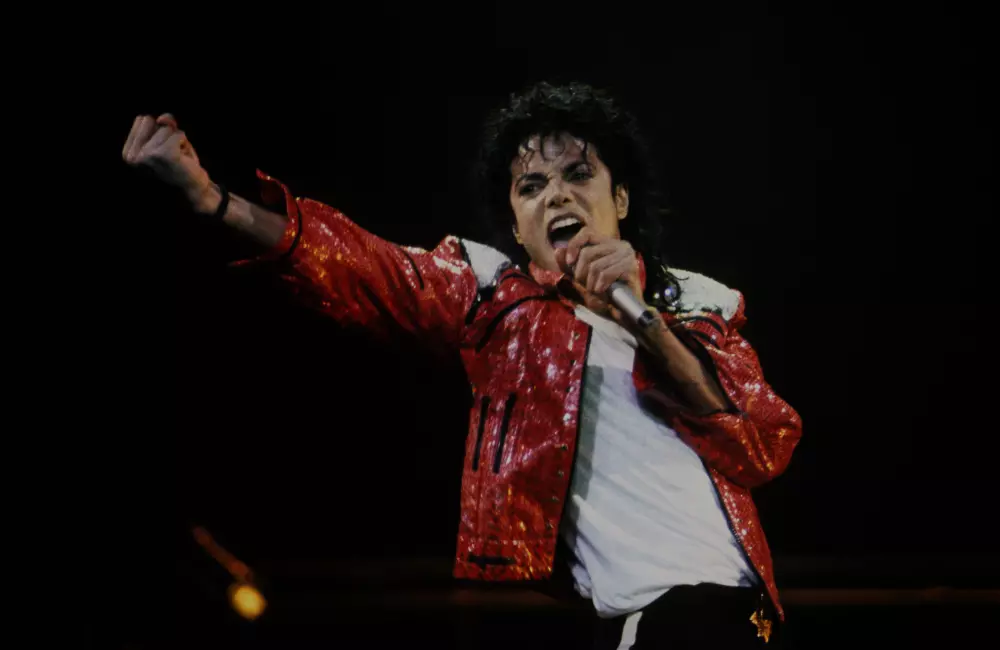The name Stephen King has long become synonymous with fear, suspense, and literary tension. He is not just a writer — he is a cultural phenomenon that has shaped generations of readers and viewers. His stories reach into the deepest corners of the psyche, evoking not only terror but also compassion, admiration, and profound reflections on human nature.
King knows how to speak about fear like no one else. He turns everyday life into an arena of confrontation with what lurks in the basements of consciousness, in the shadows of our habits, and in the silence that scares more than loud noises. His heroes are not superheroes but ordinary people: schoolchildren, teachers, writers, sheriffs. And it is this closeness that makes each of his stories especially unsettling. It feels like any of this could happen to any one of us.
Few know that behind Stephen King’s career were years of poverty, rejections, and struggle. He fought his way into literature literally from poverty, working as a teacher and laborer, writing at night in a laundromat on an old typewriter. He threw the first manuscript of “Carrie” into the trash — only his wife Tabitha believed in it, rescuing the drafts and insisting he try again.
Since then, King has made an incredible journey — from a writer rejected by every publisher to an author whose books sell in millions of copies, are adapted by Hollywood, and are studied at universities. And through it all, he remains sincere, humane, and always relevant.
This article is your guide to the universe of Stephen King. We will explore where to start reading, which films are worth watching, what the secret of his popularity is, and why his works resonate with people around the world. Ready to dive into a world where fear is not an enemy but a mirror of the soul? Then let’s begin.
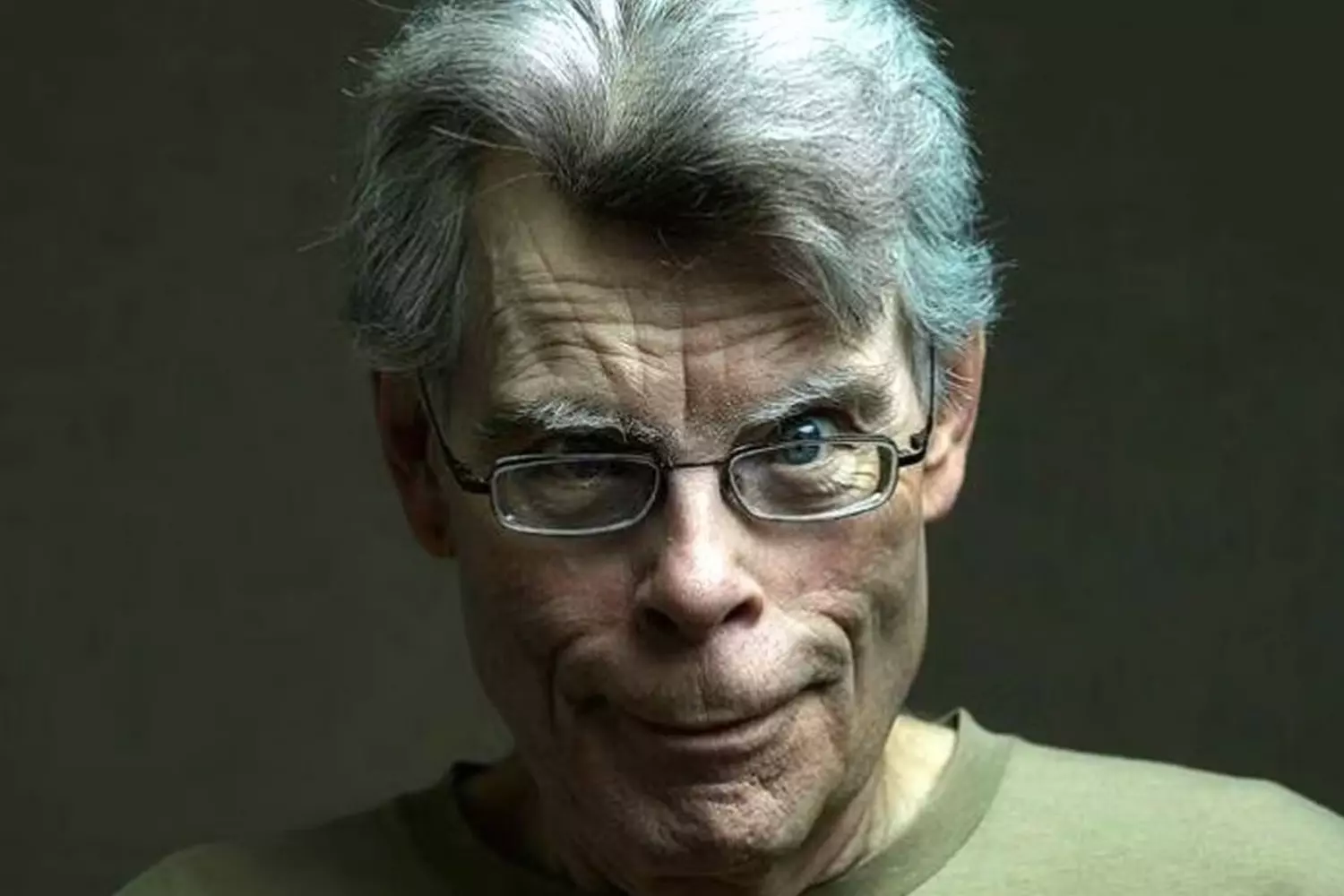
Stephen King published some books under the pseudonym Richard Bachman to find out whether people read him for his talent or his famous name. One of these novels — The Running Man — later became the basis for a film starring Arnold Schwarzenegger.
Shadows of Childhood: How Little Stephen’s Fears Turned into Horror Novels
Stephen King was born on September 21, 1947, in Portland, Maine, into a modest but educated family. When he was just two years old, his father — a sailor named Donald King — went out to buy cigarettes and never returned. This event became one of the first to leave a mark on the future writer’s soul. His mother, Nellie Ruth, took on the full responsibility of raising her two sons: Stephen and his adoptive brother David.
The family lived very modestly: they frequently moved from state to state in search of work and cheaper housing. King later recalled watching his mother wash floors in a hospital to somehow provide for her children. This reality — loneliness, poverty, and instability — became the soil in which his unique worldview took root.
"My childhood wasn’t terrible, but it was very fragile. I never knew where I would live tomorrow — or who I should be afraid of today." — Stephen King
- From an early age, signs of his vivid imagination began to appear. He quickly became fascinated with stories about monsters, aliens, and all kinds of supernatural creatures. In school, Stephen started writing short stories inspired by 1950s comics and horror films. Some of these he sold to classmates for a few cents.
- Another chilling episode from King’s childhood still sparks debate. At the age of four, he says he went for a walk with a friend. Several hours later, Stephen returned home in shock, silent. It later emerged that his friend had died after being hit by a train. Stephen remembered nothing — or had repressed the memory. This incident became one of those hazy childhood recollections that likely influenced his interest in fear and the unconscious.
- Despite hardships, King’s mother always encouraged his literary efforts. She bought him books, took him to the library, and even cheered him on when publishers rejected his work.
Thus, in the shadow of poverty, instability, and dark memories, a world was shaped where fear was not an enemy but raw material for creativity. Stephen King’s childhood is not just a life stage but the foundation on which his entire literary empire was built.
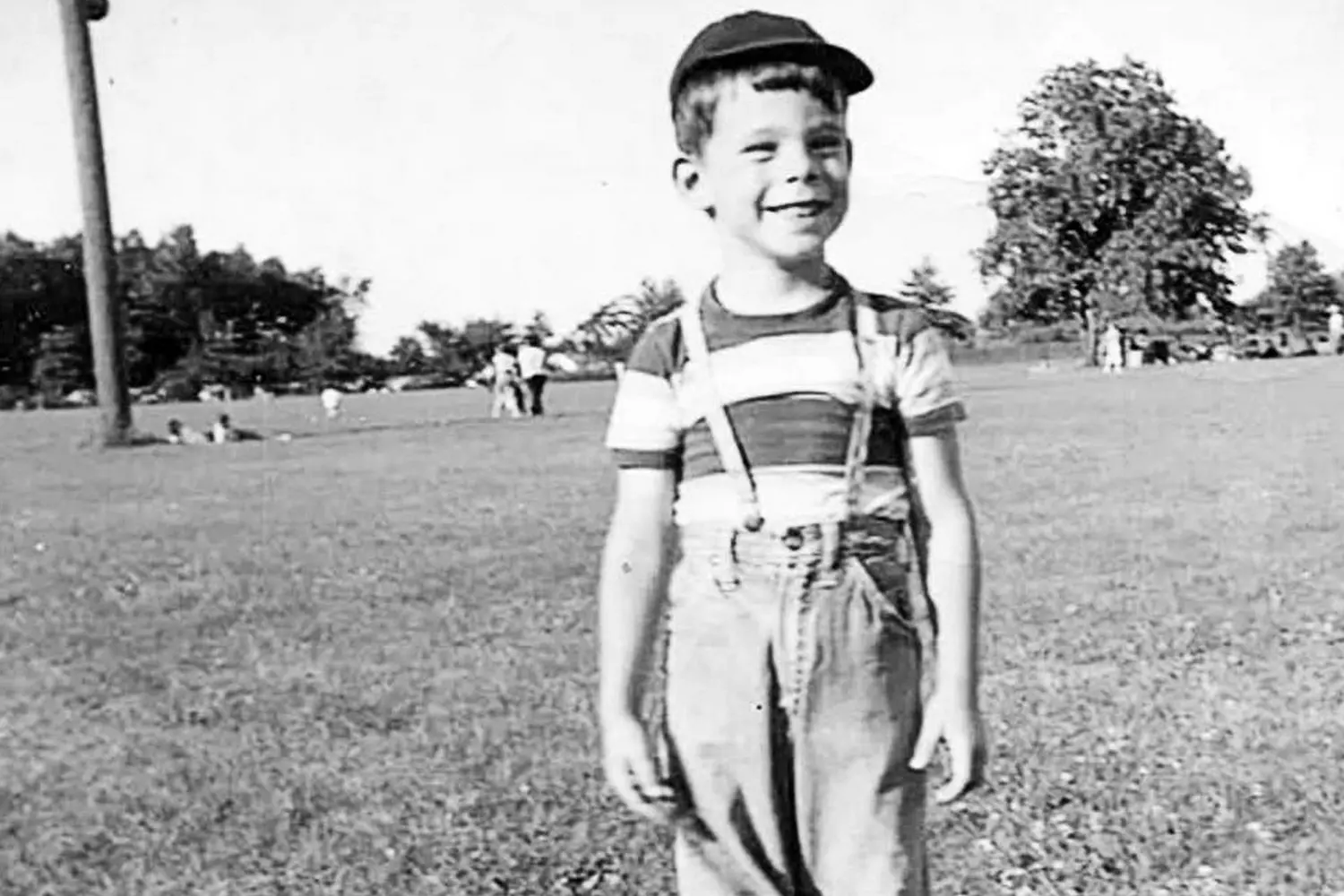
From Penny Stories to a First Novel: How King Found His Voice
Stephen King’s early literary experiments were less about inspiration and more about survival and escape from a gray reality. His imagination knew no bounds: as a young boy in elementary school, Stephen manually rewrote his favorite horror movies and then offered these "adaptations" to classmates for a symbolic fee. The teachers didn’t appreciate his entrepreneurial spirit — he was even called to the principal’s office for selling "inappropriate" material. But the seeds were sown.
- 01. He took literature more seriously in his teenage years. Together with his brother David, they published a small homemade magazine called Dave's Rag, where King published his first original stories. It wasn’t just a hobby — it was a challenge. In the era before the internet and digital platforms, Stephen sent his stories to magazines and publishers, enduring rejection after rejection, and with every letter his persistence grew.
- 02. In 1965, his first published story, "I Was a Teenage Grave Robber," appeared in Comics Review. The payment was symbolic, but it was a breakthrough — for the first time, he saw his name in print. Later, he started freelancing, writing short horror stories for cheap magazines, earning about $25–35 per story. This money helped him barely make ends meet while studying.
- 03. During this time, he studied English at the University of Maine. There he met Tabitha Spruce — a woman who not only became his wife but also played a key role in his creative destiny. They married in 1971, when Stephen was working as a teacher and moonlighting in a laundry to support his young family.
"I used to write at night, sitting on the washing machine. Nearby was an ashtray, a bottle of cheap beer, and an old typewriter. That was my kingdom." — Stephen King
It was under these conditions that Carrie was born — a novel about a girl with telekinetic powers. Initially, King thought the book was a failure and threw the draft into the trash. Tabitha pulled it out and convinced him to finish it. In 1973, Carrie was published by Doubleday and brought King his first real success — an advance of $2,500, followed by over $200,000 for paperback rights.
This marked the beginning of a new life. King quit teaching and became a full-time writer. It was with this book that the journey of one of the most prolific and influential writers of the 20th and 21st centuries began.
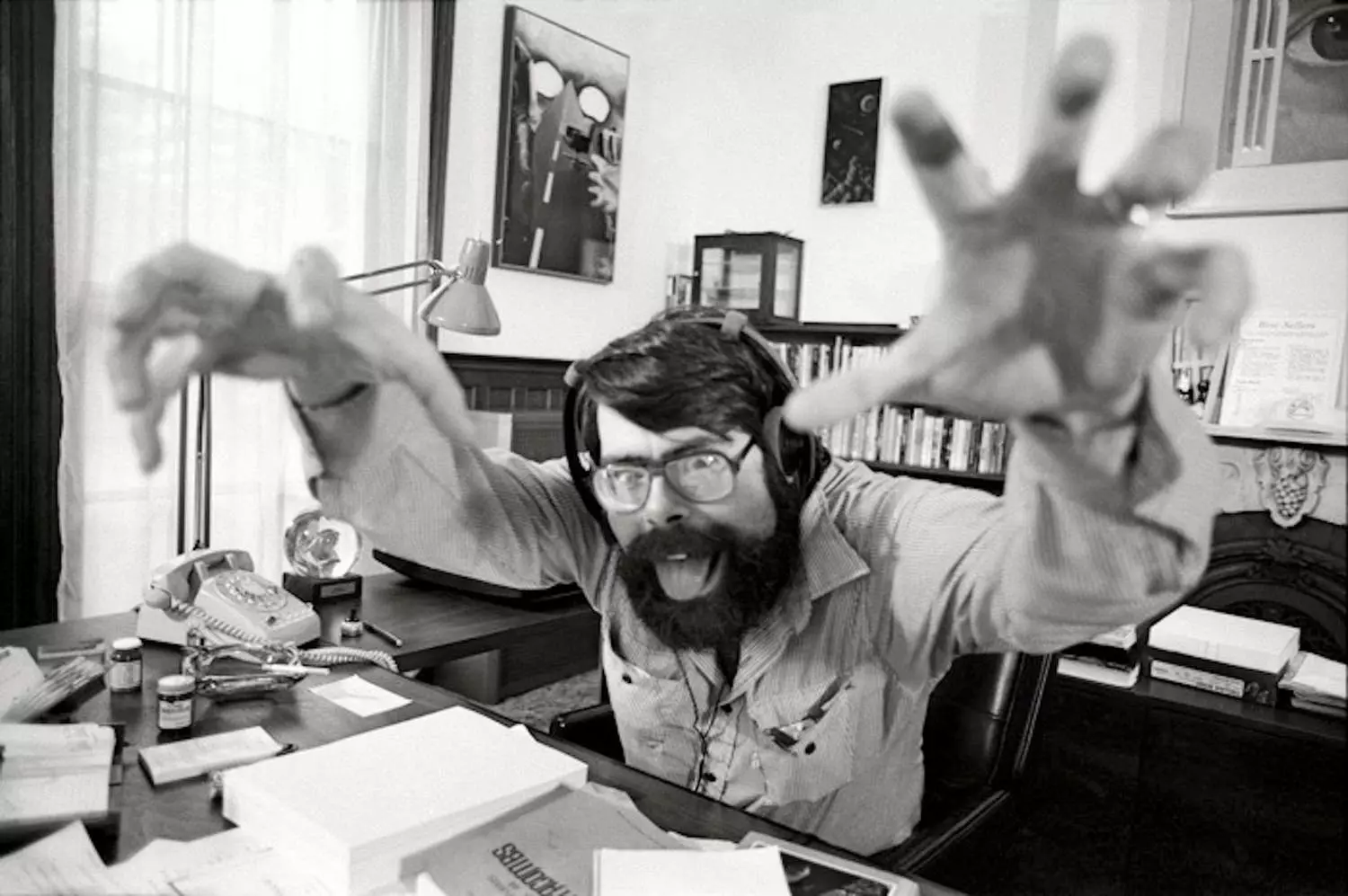
Millions of Copies and Worldwide Fame: How King Became a Legend
After the success of "Carrie", the doors to the literary world finally opened wide for Stephen King. His second novel, "The Shining", published in 1977, only cemented his success. Then came "The Dead Zone," "Pet Sematary," and "It" — each of these books became a bestseller. King quickly earned the title of the King of Horror — not only because of sales but also due to his unique ability to make horror personal, psychological, and deeply human.
By the 1980s, he was no longer just a writer — he had become a cultural phenomenon. His books were adapted into films: Stanley Kubrick directed "The Shining" starring Jack Nicholson, and Brian De Palma directed "Carrie." Later came iconic adaptations like "The Green Mile," "The Shawshank Redemption," "Misery," "1408," "It" — and the list kept growing.
In the 1980s and 90s, King experienced the peak of his popularity. His works were published almost every year. The author worked at a furious pace, sometimes releasing two novels a year. He also continued writing under the pseudonym Richard Bachman to bypass publishing limitations. These books, such as "Thinner" and "Rage", also gained recognition.
However, fame and wealth did not shield him from problems. During these years, King struggled with alcoholism and drug addiction. He later admitted that he doesn’t remember writing "Cujo" — he was so deeply immersed in substance abuse. Family and friends staged an intervention, and King decided to undergo treatment. He has remained clean since the late 1980s.
"If I have learned anything in life, it’s that the real monsters live inside us." — Stephen King
In 1999, King was hit by a car — suffering multiple fractures, several surgeries, and nearly a year of rehabilitation. Many thought he would never write again. But he came back — stronger than ever.
The 2000s brought new works: "11/22/63," "Doctor Sleep," "The Institute," "Later," "Fairy Tale". He completed the "Dark Tower" saga, which he had been working on for over 30 years. His style evolved: his texts contained more philosophy, reflections on time, life, death, and humanity. King remained relevant — new generations continue to read him.
In recent years, the author has actively collaborated with the film industry and streaming platforms. Mini-series and new film adaptations have been released, with King often participating as a consultant or screenwriter. He is also active on social media, openly expressing his political views and supporting young authors.
Today, Stephen King is the author of more than 60 novels, over 200 short stories, dozens of film and TV adaptations, millions of fans worldwide, and the status of a living classic. Yet he remains a simple man: living in Maine, reading a lot, walking his dog, and still writing a thousand words every day.
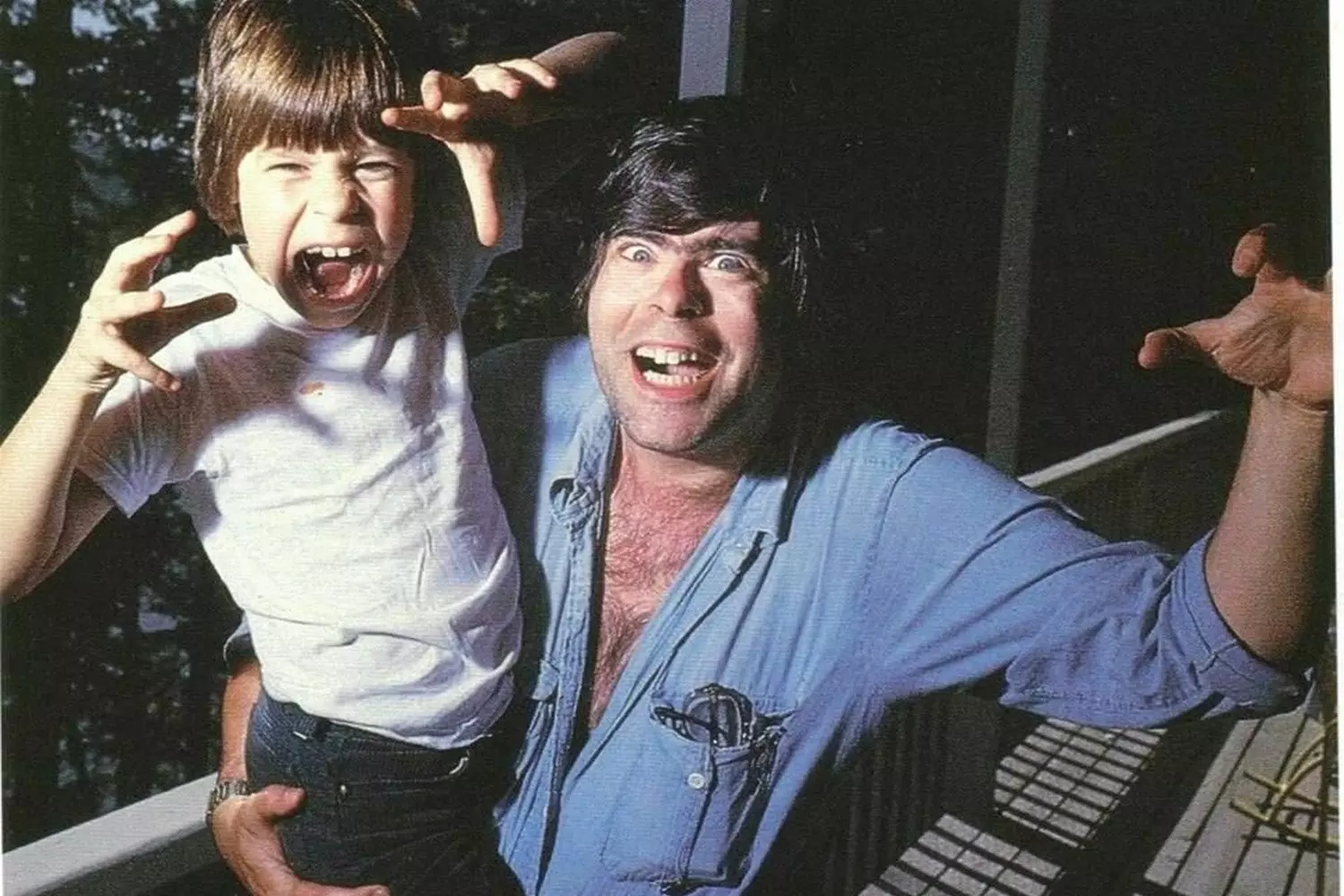
Behind the Horrors: Family, Love, and the Personal Life of Stephen King
Behind the dark atmosphere of his books lies a very different person — warm, ironic, and devoted to his family. Stephen King’s personal life is a love story that began in a library and has lasted for more than half a century. His wife, Tabitha King (née Spruce), is not just his life partner — she is his co-author, first reader, critic, and muse.
They met at the University of Maine, where both studied English literature. Tabitha worked in the library, and it was there, between the shelves, that the spark ignited. They married in 1971. From the very beginning, the family faced difficult times: poverty, debts, two small children, and endless side jobs. But Tabitha always believed in Stephen’s talent. It was she who saved the draft of "Carrie", which he had thrown into the trash. And thanks to her support, King did not abandon his writing path.
The couple has three children — Naomi, Joe, and Owen. Interestingly, two of them followed in their father’s footsteps: Owen King became a writer working in the science fiction genre, while Joe Hill (the pen name of Joseph Hillstrom King) is a successful author of horror and fantasy, known for the novels "Heart-Shaped Box," "Horns", and the comic book series "Locke & Key." Critics note that Joe Hill managed to build his career without relying on his famous father’s name, which is especially commendable.
"The most important thing in my life isn’t the novels, it’s Tabitha. Without her, there would be neither me nor my books." — Stephen King
The King family lives in Maine, where they have two homes. One of them, in Bangor, is decorated in a Gothic style with a black fence and ravens — it has become an almost cult place for fans. Recently, the couple decided to turn it into an archive and a writer’s residency for young authors.
Despite his fame and fortune, King remains humble. He doesn’t own luxury cars, prefers to wear simple clothes, and enjoys baseball, rock music, and board games. He maintains a blog, posts on social media, appears on radio shows, and supports political initiatives, especially those defending freedom of speech.
Stephen King’s personal life is an example of how to preserve humanity, love, and inner balance despite worldwide fame and the darkness he faces every day as a writer.
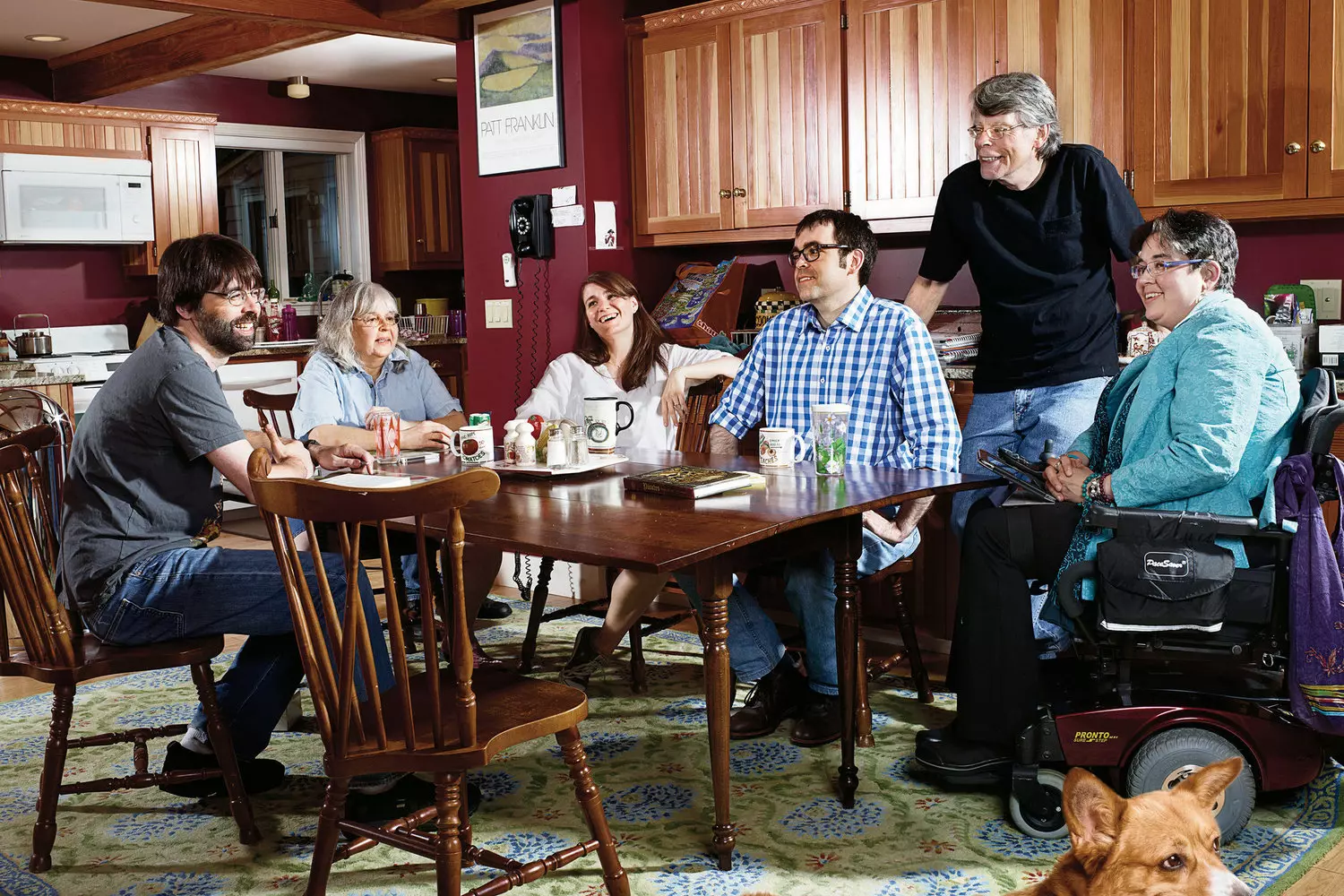
Beyond the Novels: Stephen King's Criticism and Voice in Society
Stephen King is not just a writer; he is a phenomenon that resonates far beyond literature. His work has often been the subject of criticism, debate, and academic analysis. Some have accused him of excessive violence, formulaic plots, or catering to mass audiences. Yet it is precisely his accessible language, emotional honesty, and powerful storytelling that have made King one of the most widely read authors on the planet.
- 01. Literary critics have often been divided into two camps: some saw him as a master of pop culture, others as a superficial storyteller. However, over time, the academic community’s opinion has shifted. Universities began including his novels in curricula, and scholars started writing papers on his approach to fear, trauma, social isolation, and the inner demons of man. Today, King is studied seriously — his texts are viewed as a mirror of the American subconscious.
- 02. A special place is occupied by his influence on popular culture. His works have inspired dozens of directors, artists, and musicians. He has influenced authors such as Neil Gaiman, J.K. Rowling, George R.R. Martin, and Guillermo del Toro. And his characters — Pennywise, Carrie, Jack Torrance — have become archetypes of modern horror.
- 03. Stephen King actively uses his public platform to speak out on current issues. He does not hide his political views: he has criticized Donald Trump, advocates for healthcare reform, controlled gun sales, environmental protection, and minority rights. His Twitter (now X) has become a platform where he regularly posts sharp and ironic comments about events in the US and worldwide.
- 04. Additionally, King is actively involved in charity. Together with his wife, he founded The Stephen and Tabitha King Foundation, which annually donates millions of dollars to support libraries, schools, medical institutions, and cultural initiatives, especially in their home state of Maine.
His influence is felt not only in books but also in public consciousness. He has become a symbol of how literature can be not only entertainment but also a powerful tool of social critique and change.
"Silence is a choice. And if you choose to be silent in the face of injustice, you side with injustice." — Stephen King

Stephen King's Best Books: Where to Begin Your Journey with the Master of Horror
Starting to read Stephen King is like entering a vast labyrinth where something unexpected awaits around every corner. His work is not just horror. These are stories about fear, love, loss, growing up, and hope. If you are just beginning to explore his writings, here are a few books that reveal different facets of this great author:
- 01. Carrie («Кэрри»)
This was King's first published book and became a sensation. The story of a shy girl tormented by classmates and a religious mother strikes with its emotional depth and harsh truth. "Carrie" is not just a horror story, but a parable about bullying, loneliness, and revenge. It was the beginning of the King phenomenon. - 02. The Shining («Сияние»)
One of the most terrifying novels in the author's bibliography. The plot follows a writer who moves with his family to an isolated hotel for the winter, where a struggle unfolds against his own madness and supernatural evil. This book is more than horror. It is a slow descent into the human psyche, an exploration of fear and family tragedy. - 03. It («Оно»)
A sprawling and profound novel where the horrors of adult life intertwine with childhood nightmares. A group of friends from the fictional town of Derry is stalked by an ancient evil in the form of the clown Pennywise. But really, "It" is a story about the power of friendship, memory, and the ability to confront one's inner demons. - 04. Misery («Мизери»)
When a writer is rescued from death by his obsessive fan, a nightmare begins. A story devoid of mysticism, yet no less chilling. It’s a novel about the boundaries between creativity and reality, between love and obsession. And Annie Wilkes is one of the most frightening characters in modern literature. - 05. 11/22/63 («11/22/63»)
An unusual King novel about time travel. The protagonist gets a chance to change the past and save John F. Kennedy from assassination. But the past resists. This book is an exciting mix of science fiction, historical drama, and romance. Here King acts not as a master of fear, but as a subtle philosopher. - 06. The Dark Tower series («Тёмная Башня»)
A cycle of eight books combining fantasy, western, post-apocalypse, and metaphysics. This is King’s quintessence, his personal "Bible". The story of the gunslinger Roland and his journey to the mysterious Dark Tower is an epic woven with threads from other King novels. This cycle demands time, but it is rightfully considered the pinnacle of his work.
These books are just the tip of the iceberg. Behind them lie dozens of other stories: about vampires and ghosts, love and pain, humanity in the darkest circumstances. And each one is written with a unique tone, simple yet powerful language that captivates and terrifies at the same time.
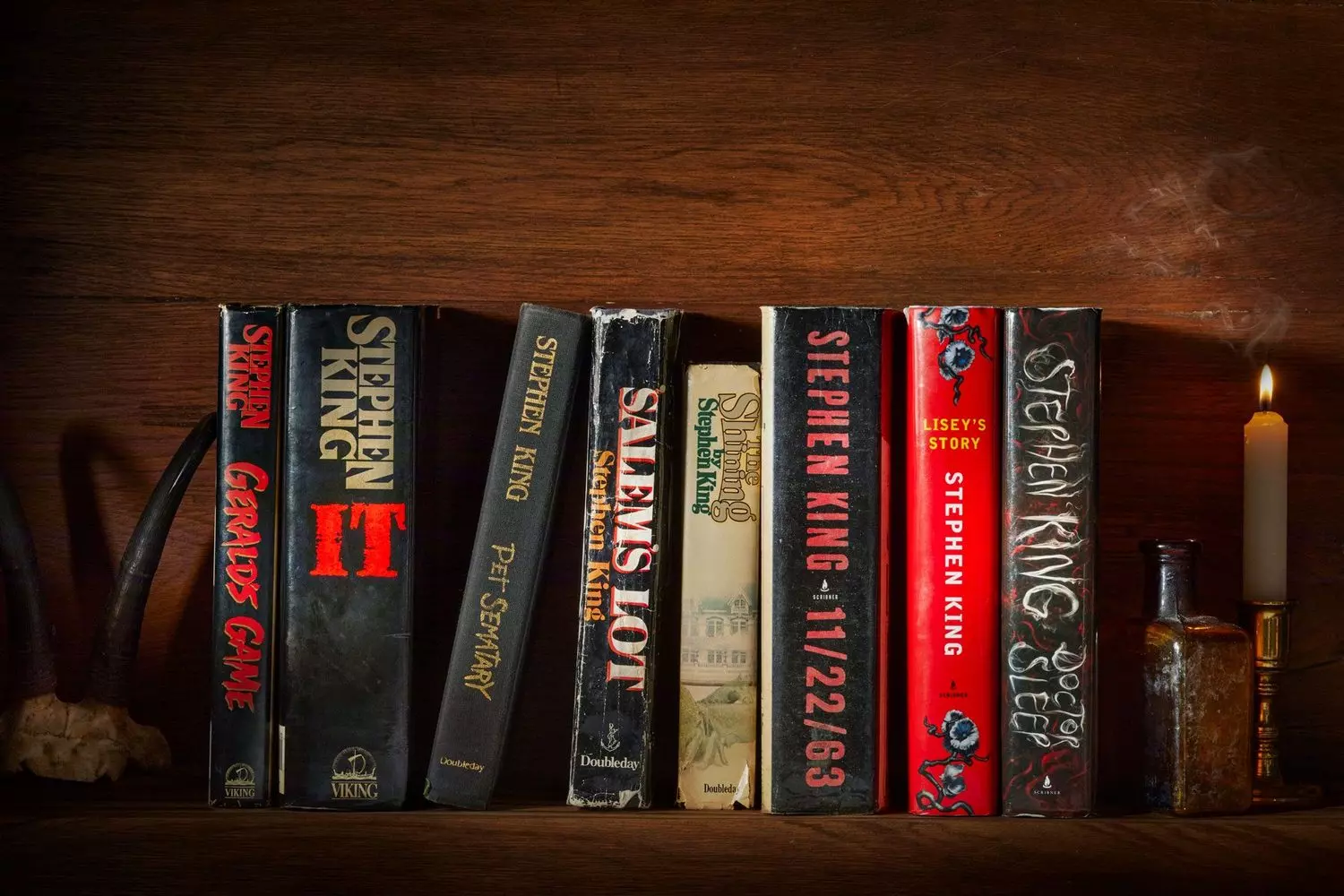
Film Adaptations: When Literature Comes to Life on Screen
Stephen King is one of the most adapted authors in history. His novels and stories are so visual, atmospheric, and rich in detail that they seem made for the screen. King’s repertoire includes over 80 official adaptations, including movies, TV series, miniseries, and even stage productions. From classic directors to streaming-era innovators, many have sought inspiration in his dark tales.
Here is a list of adaptations worth watching:
- 01. The Shawshank Redemption (1994)
Based on the novella "Rita Hayworth and Shawshank Redemption". Frank Darabont’s film became one of the most beloved in cinema history, although it went almost unnoticed at first. This story about hope, inner freedom, and resilience of spirit is a powerful example of how King can speak about light even in the darkest settings. - 02. The Green Mile (1999)
Another masterpiece by Darabont, based on the novella of the same name. A mystical drama about the supernatural gift of a prisoner and human cruelty inside prison walls. Tom Hanks and Michael Clarke Duncan created deep, tragic characters, and the story itself evokes a strong emotional response. - 03. It (2017 and 2019)
A modern two-part adaptation of one of King’s most famous novels. Bill Skarsgård’s portrayal of Pennywise is as terrifying as the childhood nightmares of clowns. This version focuses both on horror and the emotional story of friendship and growing up. An excellent balance between frightening and heartfelt. - 04. The Shining (1980)
The legendary film by Stanley Kubrick, considered by many the pinnacle of cinematic horror. Jack Nicholson as the obsessed writer Jack Torrance is an icon of the genre. Interestingly, King himself was dissatisfied with this adaptation, finding it too cold and distant from the spirit of the original: "It’s a great film, but a bad adaptation." - 05. Misery (1990)
Director Rob Reiner created an intimate thriller that keeps viewers on edge from start to finish. Kathy Bates, who played Annie Wilkes, won an Oscar — a rare achievement for a King film. This adaptation perfectly conveys the atmosphere of anxiety, despair, and psychological pressure. - 06. 1408 (2007)
A film based on the short story of the same name — one of the most stylish and frightening King adaptations of the 21st century. John Cusack and Samuel L. Jackson create a convincing confrontation between reason and the supernatural. The confined space of a hotel room turns into a true hell — both literal and psychological. - 07. Doctor Sleep (2019)
The sequel to “The Shining,” based on King’s novel of the same name. Director Mike Flanagan managed to combine the spirit of Kubrick’s original with the author’s personal story. The film explores the consequences of trauma, the power of memory, and the battle with inner demons. An excellent continuation that deservedly received praise from critics and fans alike.
King’s adaptations are not just movies. They are cultural events that live their own lives, sometimes even surpassing the originals. They become standalone works of art that nonetheless always carry the spirit and power of King’s prose. His worlds, brought to life through cinema, gain flesh and blood, fear and compassion, horror and hope — all the things that millions of fans worldwide continue to read in his books and watch on screen.
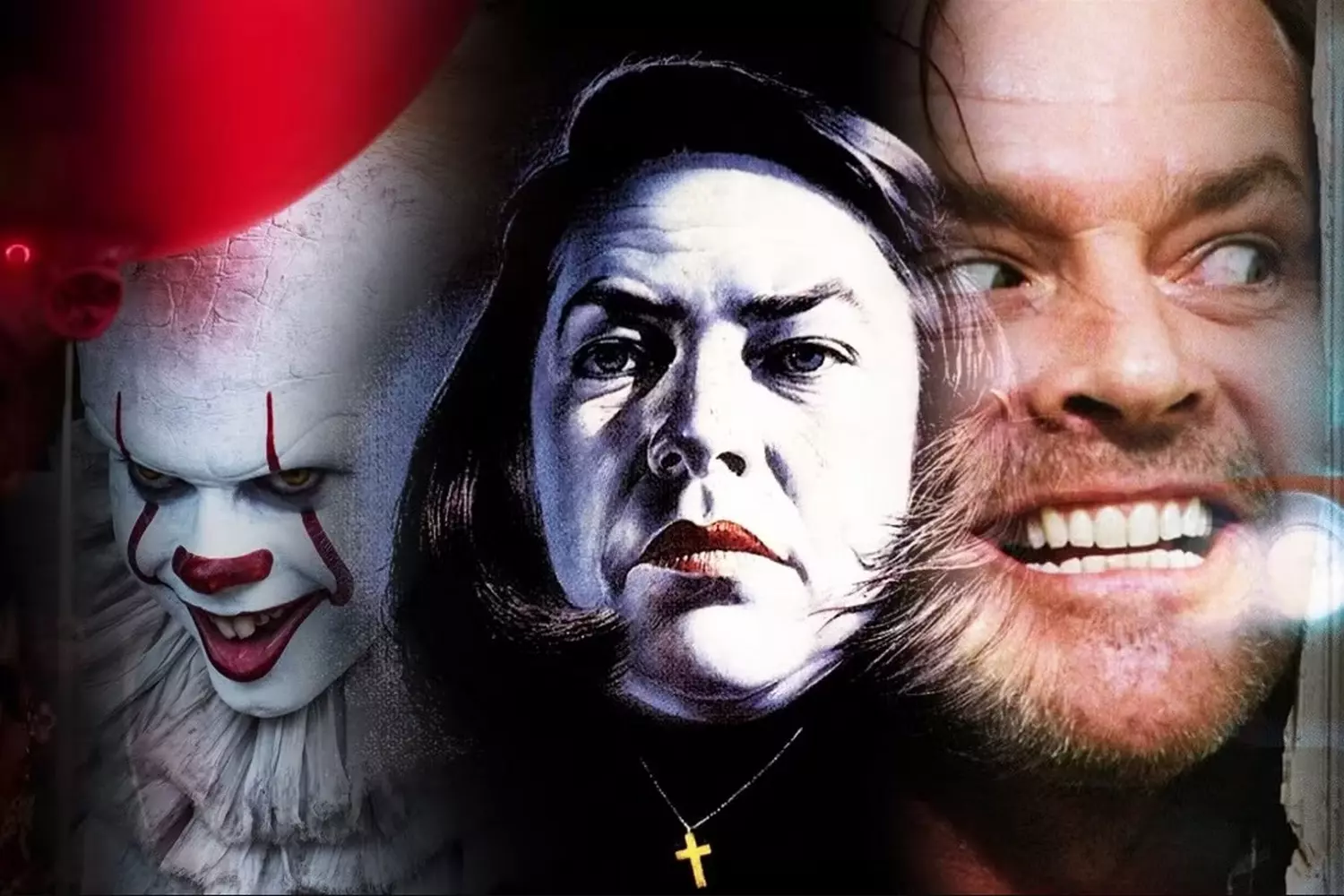
Why is Stephen King so popular?
Stephen King's success is no accident and not merely the result of luck. It is the fruit of a unique talent and deep honesty in his work, which touches the most delicate strings of the human soul. Why has he become a cult author whose books are read by millions and adapted worldwide? Let’s examine the key components of his phenomenon.
- 01. Writing about ordinary people with their real fears
King doesn’t create heroes who resemble superhumans or perfect characters. His heroes are ordinary people, often with problems, fears, and flaws — just like we see ourselves and those around us. Whether it’s a schoolkid facing peer pressure, a writer in a creative crisis, or an elderly prisoner in jail — they all feel alive and genuine. Thanks to this, readers easily develop sympathy and empathy for them. - 02. Finding monsters inside the human rather than only outside
King masterfully shows that the scariest horror is not always supernatural evil. Often the greatest monsters are internal demons — fears, doubts, aggression, and greed. In "The Shining," the hero battles not only the hotel ghosts but also his own madness. In "Misery," the threat comes from a fanatical admirer rather than spirits. This inner dramaturgy makes his works especially profound. - 03. The ability to keep tension without overloading with philosophy
Many modern writers either analyze human nature too dryly, turning their work into a philosophical treatise, or overload the plot with unnecessary details. King expertly balances between a gripping storyline and deep ideas. His books are easy to read yet make you think. He skillfully guides the reader on a tightrope without falling into banality or dragging on. - 04. Blending genres — from horror to social drama
Although King is known as the king of horror, his work goes far beyond. His novels contain elements of fantasy, thriller, mysticism, drama, and even social criticism. For example, "The Shawshank Redemption" is not a horror story but a powerful tale of hope and freedom. "11/22/63" is a sci-fi story with a historical twist. Such genre mixing broadens the audience and makes his works multifaceted. - 05. Speaking in a language everyone understands
King’s style is simple, lively, and emotional. He avoids excessive pomposity and doesn’t try to seem smart just for the sake of it. His language is close and understandable both to teenagers and adult readers. This opens the doors to his stories for the widest possible audience. His words catch, engage, and stay in memory for a long time.
Main themes in Stephen King’s work
- Fear and overcoming fear
King doesn’t just scare — he explores how people deal with their fears, how they change under pressure. - Childhood and trauma
Remembering childhood years, characters face traumas that affect their entire lives. Themes of growing up and memory are invariably intertwined with the plots. - Loneliness and love
In the world of horror, there is always room for warmth — friendship, family, love that helps to fight the darkness. - Evil in human nature
Often evil is not external but comes from the person themselves, their weaknesses and desires. - The struggle with fate and inner demons
Many characters have to fight not only external threats but also their own weaknesses, vices, and destiny.
King’s popularity is a combination of storytelling mastery and the depth of the human themes he writes about. His books are not just horror stories but reflections of our inner world — with its fears, hopes, and struggles. That is why they resonate in the hearts of readers worldwide and continue to inspire new generations.
If you want to dive into a world of genuine emotions and quality storytelling — Stephen King’s books will be an excellent choice.
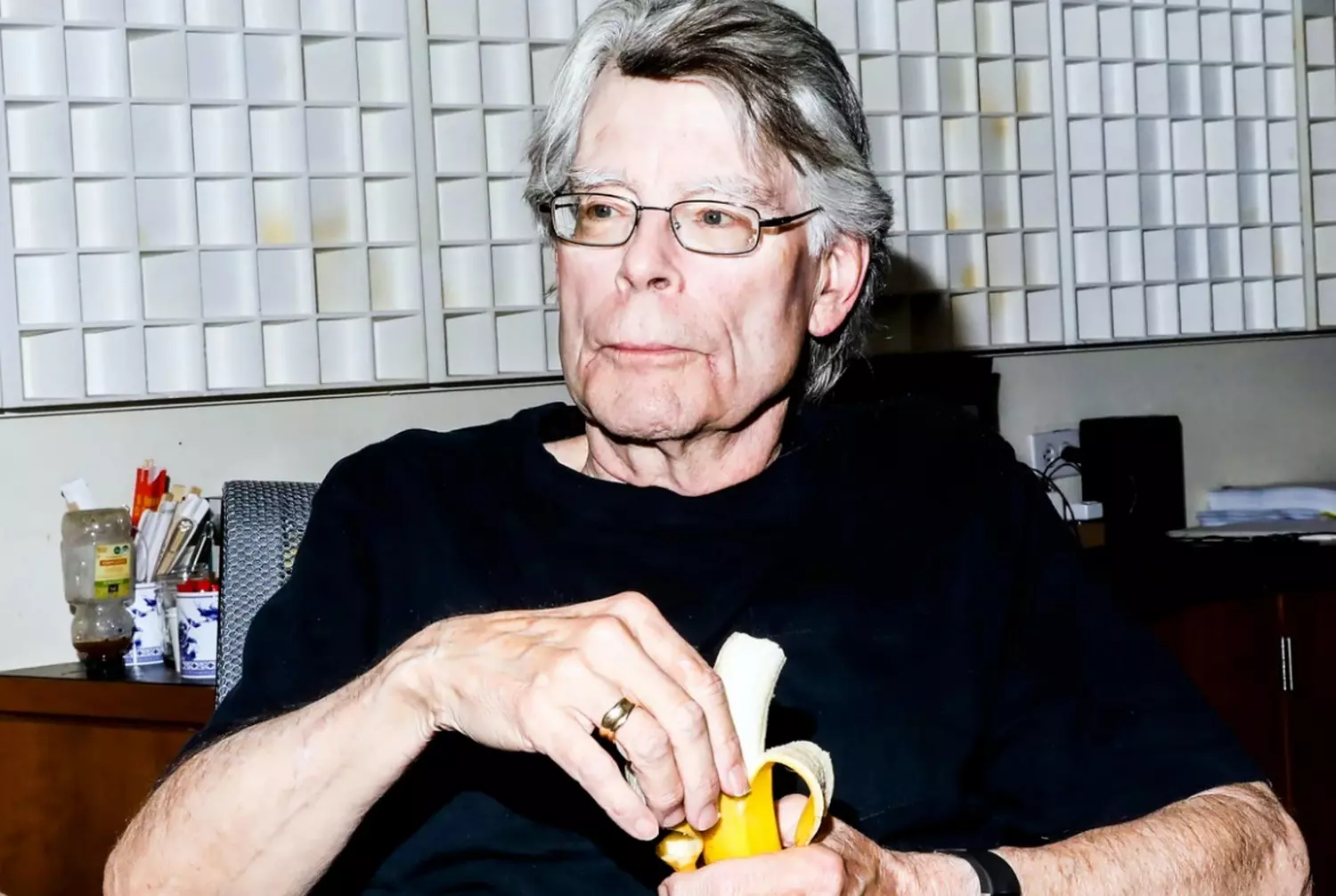
What to read next: rare and underrated works
If you are already familiar with Stephen King’s iconic novels — such as It or The Shining — and want to dive deeper into his work, it’s worth paying attention to his less popular but equally gripping pieces. These books and stories reveal new facets of the author and offer unique experiences.
- 01. The Long Walk
This novel is one of King’s darkest dystopias (written under the pseudonym Richard Bachman). The story revolves around a brutal competition where a hundred young participants must keep walking nonstop until only one survives. It’s a psychological horror that immerses the reader in an atmosphere of despair, pain, and human endurance. The book explores themes of power, control, survival under extreme conditions, as well as questions of morality and humanity. - 01. Rage from the collection Everything’s Eventual
Rage is a chilling story about a school shooter who loses control over himself. The text pierces to the core with its realism and psychological depth. Although King later disowned this story, recognizing its danger and provocativeness, it remains an important work that exposes the dark sides of the human psyche and the problem of violence. It is not just horror but a bitter social commentary. - 03. Thinner
This novel combines King’s classic horror with elements of traditional legends. The protagonist — a successful lawyer — is cursed by a gypsy and starts losing weight rapidly. The story is built on the idea of justice and retribution but with King’s signature American ingenuity. Thinner is a book about punishment and redemption, where ancient myths meet the modern world. - 04. Insomnia
Insomnia is one of King’s most complex and philosophical novels. There is no typical horror here, but plenty of meditations on aging, death, fate, and the battle with inner demons. The main character suffers from chronic insomnia, which gradually reveals to him secrets hidden behind everyday reality. The novel is rich in symbolism, parallels, and allegories, prompting reflection on the nature of life and death. - 05. Dreamcatcher
This science-fiction novel is filled with allusions and images from the subconscious, exploring themes of friendship, memory, and the fight against evil in an unusual format. The story follows a group of friends who encounter an alien threat in the forests of Maine. Dreamcatcher combines elements of sci-fi and horror, revealing themes of childhood trauma and the power of unity.
Why should you pay attention to these works?
- They show another side of King — not only as a master of horror but also as a deep psychologist, philosopher, and observer of society.
- They tackle complex, often taboo topics: violence, aging, guilt, and redemption.
- They enrich the understanding of King’s work and broaden the horizons of how his worlds are perceived.
If you’re ready to go beyond the popular stories and discover new facets of the great master’s creativity, these works will be an excellent choice. They will make you think, frighten you, and let you feel the depth of human nature, which King portrays better than many contemporary writers.
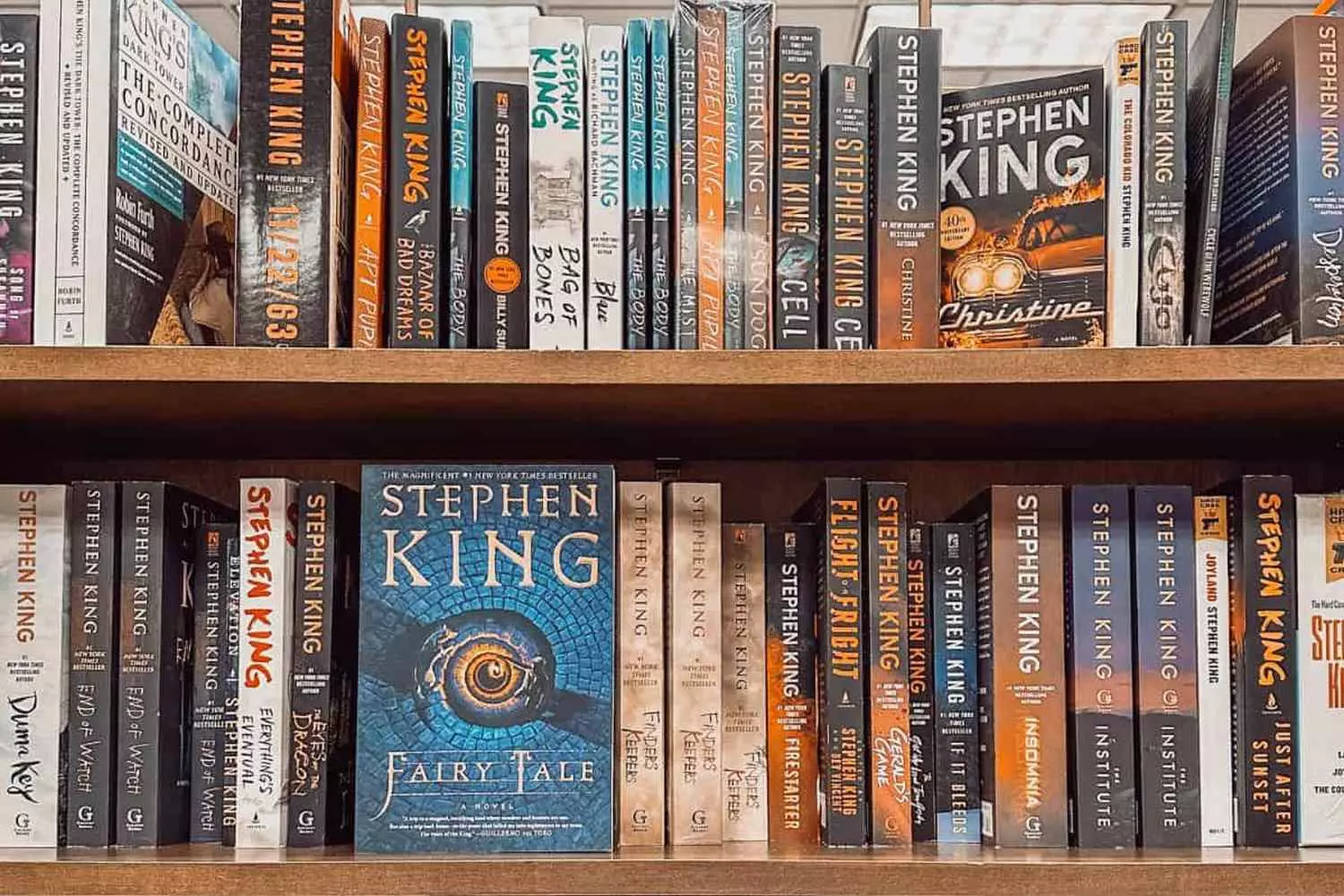
The influence of Stephen King on culture: from the pages of books to music and video games
Stephen King is not just a writer; he is a cultural phenomenon whose work has had a colossal impact on a wide range of art and entertainment fields. His name is synonymous with the horror genre, but his influence extends far beyond — from literature to film, music, and even video games. Let’s explore how exactly King’s creativity has permeated the cultural code of our time.
- 01. Literature: Inspiration for a New Generation of Authors
King’s work has inspired many contemporary writers who draw not only plot ideas from him but also his style, approach to character creation, and emotional depth. Among the most notable authors acknowledging King’s influence is his own son, Joe Hill, who has earned a reputation as an independent and talented master of horror and fantasy. Joe Hill has repeatedly admitted that his father’s example helped him believe in his own abilities and hone his writing craft.
The influence of King is also felt in names such as Neil Gaiman — one of the most prominent modern fantasists and graphic novel creators — as well as Gillian Flynn, author of popular psychological thrillers. Paul Tremblay, a well-known writer and screenwriter, also openly speaks about how King’s books became a cornerstone in developing his own creative work. Thus, King creates not just works but a whole school that affects literary trends and shapes new generations of authors. - 02. Film and Television: Visualizing Fears and Emotions
Adaptations of King’s works have long become cinematic classics. From Stanley Kubrick’s cult The Shining to modern Netflix series and films — King’s stories come alive on screen and continue to influence the horror and thriller genres. Films based on his books often serve as sources of inspiration for directors and screenwriters, setting a high bar for quality cinematic horror. - 03. Music: References and Inspiration
Equally remarkable is King’s influence on music culture. The band Anthrax, one of the most famous American metal groups, has repeatedly referenced King’s work in their songs. For example, the tracks “Among the Living” and “A Skeleton in the Closet” contain direct references to the novels It and The Shining. Such musical citations show that King’s literature has deeply penetrated the consciousness even of those who are not fans of the horror genre. - 04. Video Games and Comics: Interactive and Visual Legacy
King’s creativity has also inspired video game developers. Games based on his books have been created where players face elements of psychological horror, puzzles, and characters from his universe. Comics based on King’s works broaden the readership, offering new ways to immerse in his worlds.
Stephen King’s influence on contemporary culture is a vast, multifaceted process that covers literature, cinema, music, games, and visual arts. His works not only shape the horror genre but also inspire creators across different fields, creating a powerful cultural legacy. This author has proven that literature can impact society by penetrating the most unexpected areas of human life and creativity.
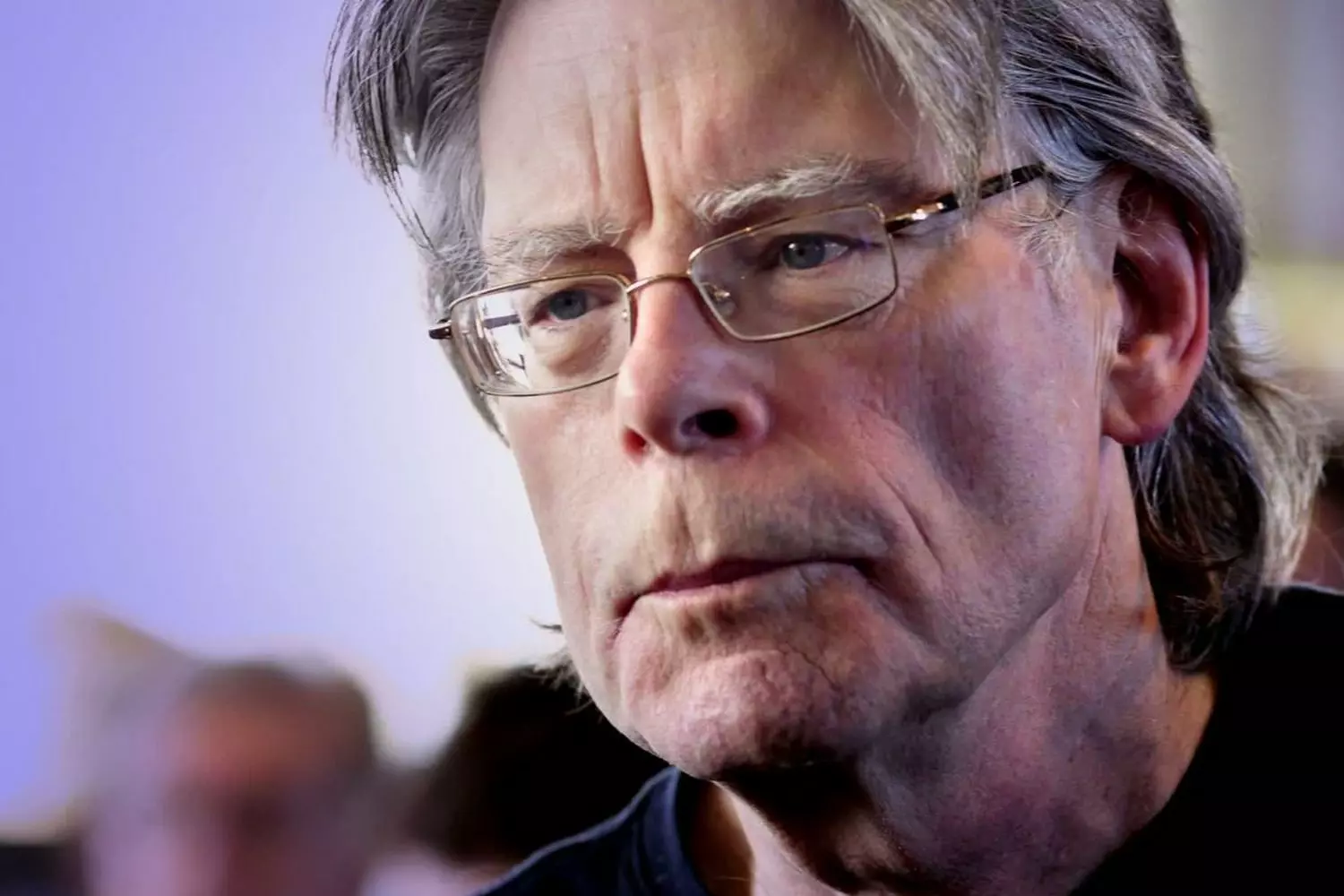
Dark secrets and incredible twists: little-known facts about Stephen King
Stephen King is not just the "King of Horror," but a man whose biography could be the plot of one of his own novels. Behind the facade of success lie childhood traumas, strange coincidences, and almost mystical events that influenced his work. From being "abducted" by Martians instead of his father to a real-life encounter with death — here are some of the most unexpected facts from the life of the master of fear.
- 01. He was almost killed in prison
In the 1970s, King taught at a maximum security prison. One day, inmates took him hostage but released him when they realized he was not a guard, but a teacher. Later, this experience inspired scenes in The Green Mile. - 02. He believes in ghosts (and claims to have seen them)
In the house where he wrote The Shining, according to him, a ghost lived — King heard footsteps on the stairs and felt someone's presence. Later he bought a mansion with a cemetery in the backyard — for "inspiration." - 03. He wrote a screenplay for Michael Jackson
In the 1980s, Jackson wanted to make a film based on The War of the Worlds starring himself and asked King to write the screenplay. The project never materialized, but the drafts are kept in the writer’s archives. - 04. His house is an exact copy from Silent Hill
- King’s mansion in Bangor, with turrets and stained glass windows, is so gloomy that fans call it the "real Silent Hill." The writer himself jokes: "If I disappear — look for me in the basement."
- 05. He played in a band with Steven Spielberg and Eminem
King is a rock fan and a member of the band Rock Bottom Remainders, which also included Eminem (on backing vocals) and Spielberg (on harmonica). The band played only 5 concerts but raised $2 million for charity. - 06. He owns a radio station that broadcasts heavy metal 24/7
WZON in Maine plays Black Sabbath, Metallica, and songs from King’s movie soundtracks. He sometimes broadcasts live, introducing tracks as "music for killers from your nightmares." - 07. He predicted a pandemic in 1978
In the novel The Stand, a virus kills 99% of the population. When COVID started in 2020, King tweeted: "No, I’m not a psychic — just guessed right." - 08. He spent his first royalty on a milking machine
For selling the rights to Carrie, King received $400,000. His first purchase was... a milking machine for his farm in Maine. "Back then I seriously thought about quitting writing and becoming a farmer," admits the author. - 09. He saved a woman’s life after she dialed the wrong number
In 2006, a fan accidentally called King instead of her psychologist. The writer talked to her for 40 minutes, talked her out of suicide, and then paid for her treatment. - 10. He appeared in the TV series Sons of Anarchy as a corpse
In a 2012 episode, King played... a dead body with a bullet in the head. The filming took 9 hours. - 11. His computer is infected with a 1989 virus
His working Macintosh SE/30 still runs System 6.0.4 — King deliberately refuses to update his tech, considering it "part of the creative process." - 12. He wrote a script for The X-Files
The episode "Chinga" (season 5) was created by King overnight. Initially, Scully was supposed to die. - 13. His name is banned in 17 US prisons
Inmates believe King’s books are "conduits for dark forces." At Attica prison, possessing It results in additional time. - 14. He collects killer cars
In King’s garage are: a Plymouth Fury (as in Christine), an ambulance carriage from Sometimes They Come Back, and the wrecked van that hit him. - 15. He founded a school for writers with creepy rules
At the “Write Like King” courses, it’s forbidden to sleep more than 4 hours, shower while working on a novel, or use the words "supernatural" and "creepy."
King admits that 60% of his "fictional" characters are based on real people. "Neighbors still dodge me at the supermarket," the writer laughs.
Want more? King’s archives hold 23 unpublished novels that are scheduled to be released after his death...
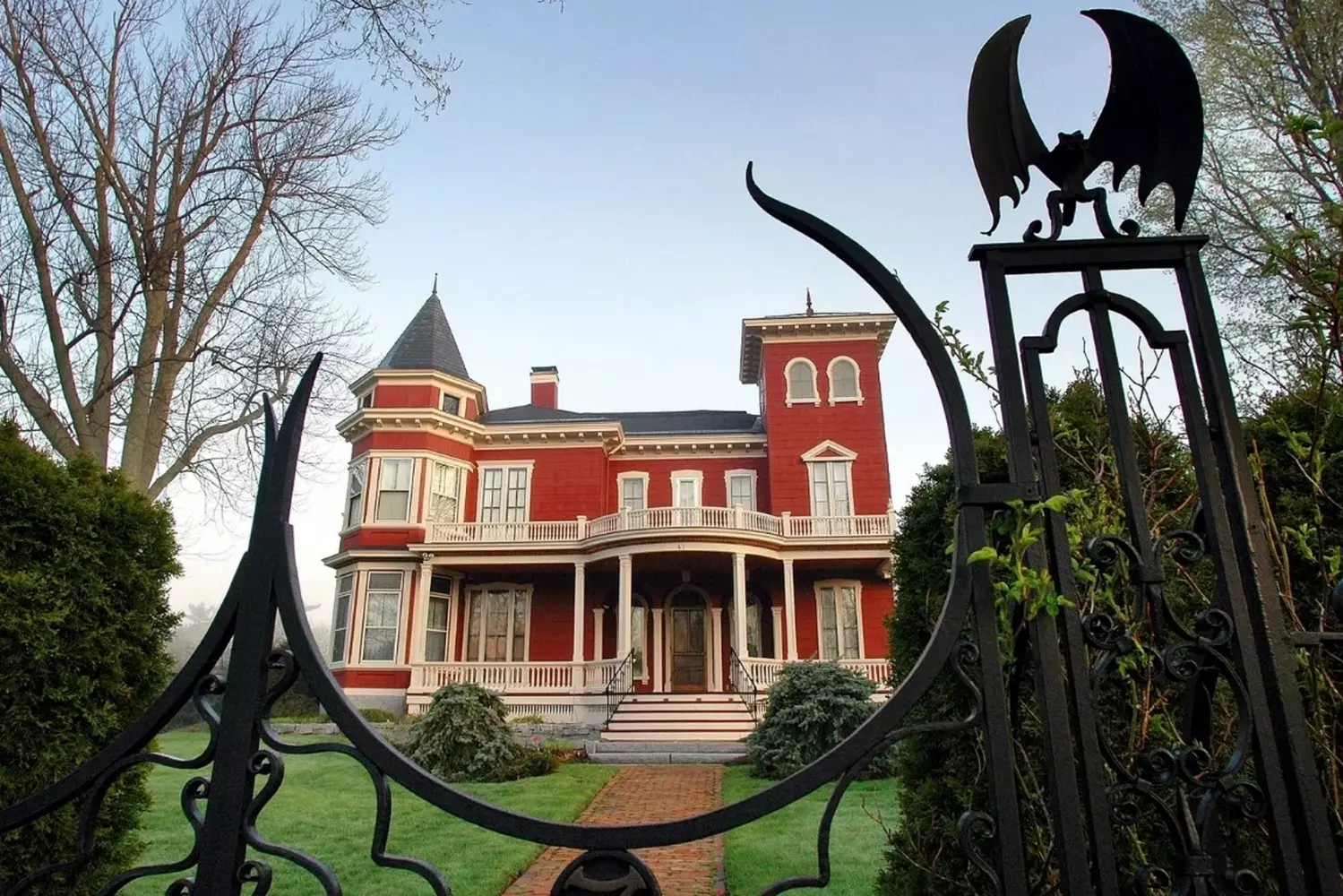
Discover America through the eyes of Stephen King with American Butler
Stephen King is not just about horror. He is a mirror of our times, our fears, relationships, dreams, and weaknesses. His books remain relevant for decades because he writes about people, not just monsters.
If you are looking for literature that will leave no one indifferent — start with Stephen King. His stories frighten, inspire, and make you think. It’s an experience you want to repeat.
Want not just to read, but to live in Stephen King’s world? We organize unique author’s tours to places connected with his life and books. Visit real locations from “It”, “The Shining”, and other novels — from the town of Derry (Bangor, Maine) to abandoned hotels that inspired iconic scenes.
American Butler knows how to bring literature to life.




























